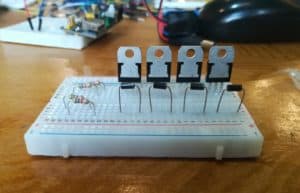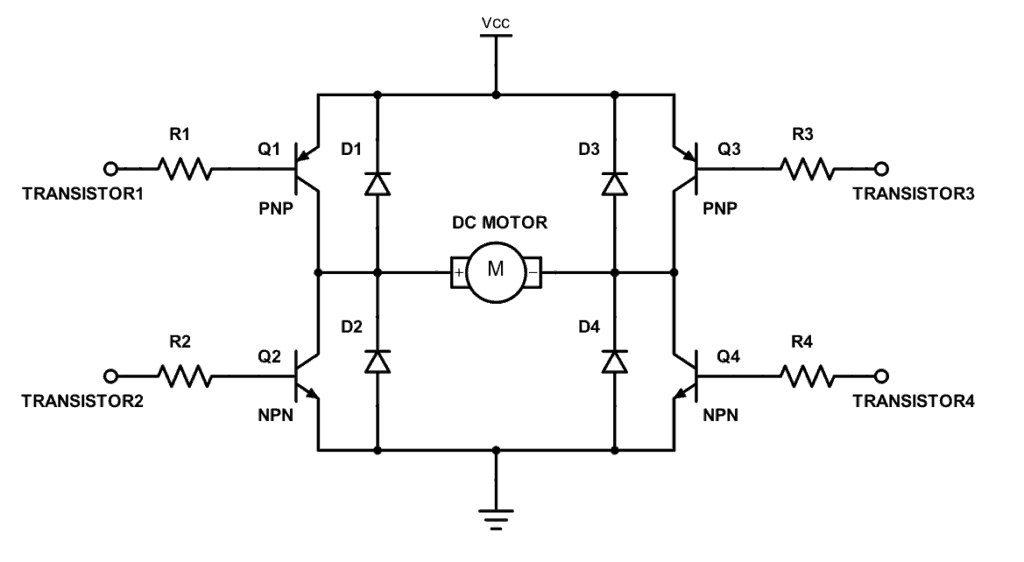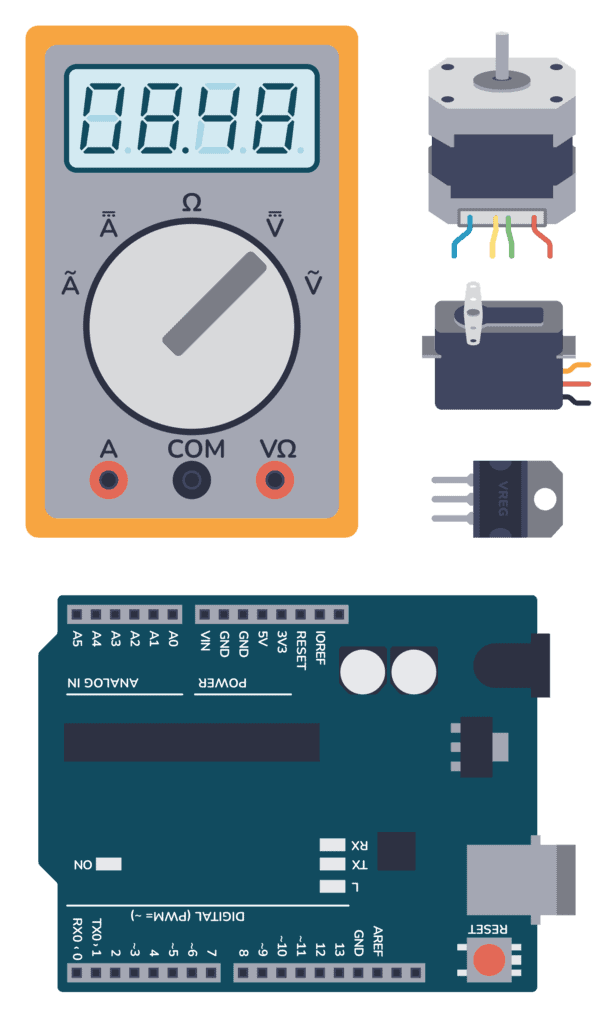 Today we tried to build an H-bridge to control the motors.
Today we tried to build an H-bridge to control the motors.
An H-bridge is a circuit that makes it easy to control a motor to go backward or forward, for example from an Arduino.
We used TIP120 and TIP127 transistors and built the following circuit using 5V as VCC:

It did not work.
We are not sure if there was a problem with the connections – or if the circuit design itself as the problem.
What’s next?
Until next time, I will check the connections of the circuit and do some measurements. Eduardo will look at simulations to see if he can find any problems with the circuit there.

Basic Electronics for Arduino Makers
Learn the basics that every Arduino maker should know, and it'll open you up to a world of possibilities! Sign up for my circuit tips by email and I'll send you the eBook:
We’ll meet up in one week to continue building the robot.
Check out week 3 of the build >>
Go back to the overview of Club de Arduino
More Arduino Tutorials

Basic Electronics for Arduino Makers
Learn the basics that every Arduino maker should know, and it'll open you up to a world of possibilities! Sign up for my circuit tips by email and I'll send you the eBook:
